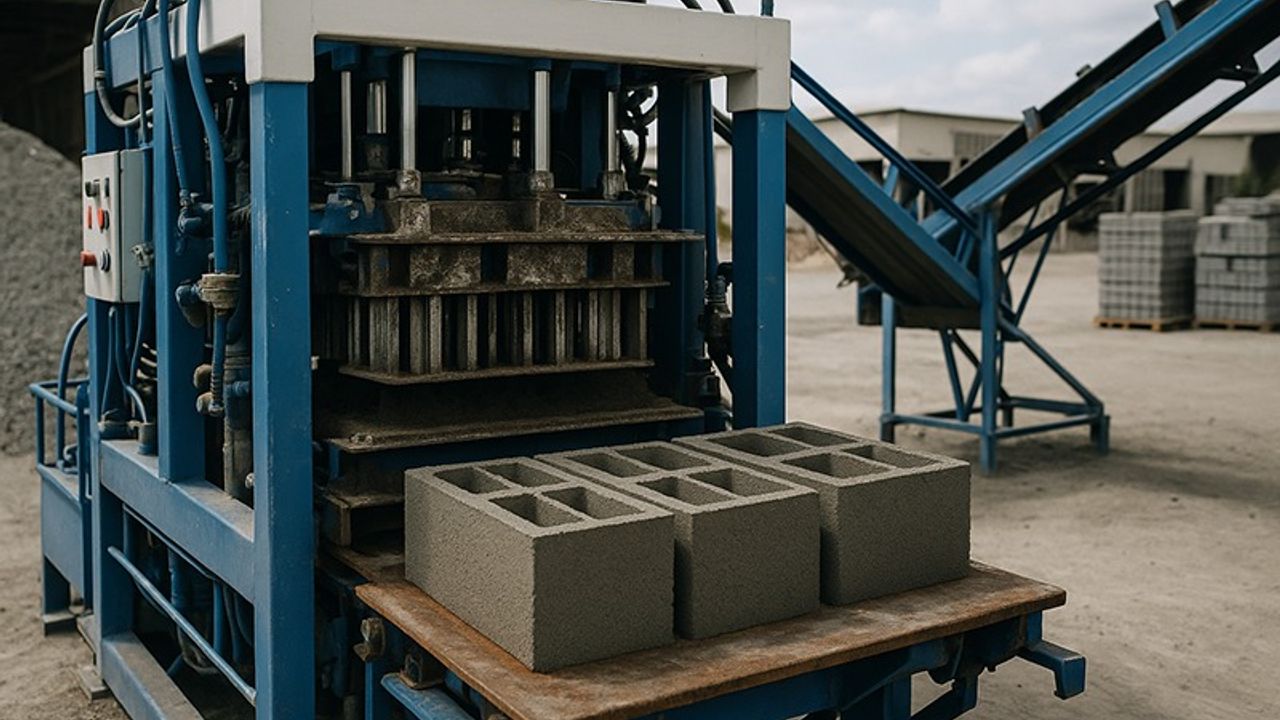A Block Machine is a specialized piece of industrial equipment used in the manufacturing of concrete blocks. These machines are essential in modern construction due to their ability to produce high-quality, uniform blocks efficiently. Whether for residential buildings, commercial properties, or infrastructure projects, the demand for concrete blocks has made block machines an indispensable part of the industry.
The Evolution of Concrete Block Machines
Concrete Block Machines have undergone significant transformations since their invention. Early versions were manually operated and offered limited output. However, technological advancements have led to the development of automated and semi-automated block machines that enhance productivity while minimizing labor costs.
Today, block machines can be categorized into various types based on their operating mechanisms, including:
· Manual block machines
· Semi-automatic block machines
· Fully automatic block machines
· Mobile block machines
Each type serves specific production needs and project scales. For example, manual machines are ideal for small-scale projects, while fully automatic machines suit large-scale, continuous production environments.
Key Components of a Block Machine
To understand how a block machine works, it’s important to look at its main components:
1. The Hopper
The hopper is where the raw material mix (cement, sand, gravel, water, and sometimes additives) is stored before entering the mold. It plays a crucial role in feeding the right amount of material into the system for each cycle.
2. The Mold
The mold determines the shape and size of the concrete block. Modern Concrete Block Machines come with interchangeable molds, allowing manufacturers to produce various types of blocks—hollow, solid, paving, and more.
3. Vibration and Compression System
This system ensures that the raw materials are evenly distributed and compacted within the mold. Proper vibration and compression are vital for producing durable and uniform blocks.
4. Hydraulic System
In fully automatic machines, the hydraulic system powers the pressing and demolding process, ensuring smooth operation with consistent force and speed.
5. Control Panel
Most modern machines feature digital control panels that allow operators to adjust production settings, monitor output, and manage maintenance schedules.
Advantages of Using Concrete Block Machines
Increased Efficiency
One of the most significant advantages of using a Block Machine is increased production efficiency. Unlike manual block-making methods, automated machines can produce hundreds or even thousands of blocks per hour.
Consistent Quality
Concrete Block Machines ensure consistent block dimensions, density, and strength. This is essential for structural integrity in construction projects.
Reduced Labor Costs
Automated systems reduce the need for manual labor, which in turn lowers operating costs. Laborers can focus on other important tasks like curing, stacking, and transporting.
Environmental Benefits
Modern block machines are designed to minimize waste and maximize raw material usage. Additionally, many systems recycle water and surplus materials, supporting eco-friendly production practices.
Applications of Block Machines in Construction
Concrete blocks produced by block machines are used in a wide range of applications:
· Load-bearing and non-load-bearing walls
· Pavements and walkways
· Retaining walls
· Landscaping projects
· Industrial building structures
Due to their strength and durability, concrete blocks are preferred in areas prone to extreme weather conditions or seismic activity.
Different Types of Concrete Blocks Produced
A versatile Concrete Block Machine can produce several types of blocks, including:
Hollow Blocks
Lightweight and thermally efficient, hollow blocks are used for both internal and external walls.
Solid Blocks
These are dense and strong, ideal for load-bearing walls and foundational structures.
Paving Blocks
Used for driveways, sidewalks, and patios, paving blocks are manufactured with high aesthetic and functional standards.
Interlocking Blocks
These blocks lock together without the need for mortar, allowing for quick and efficient construction.
Factors to Consider When Choosing a Block Machine
When investing in a Block Machine, several factors should be considered to ensure it meets your production needs:
Production Capacity
Consider how many blocks you need to produce daily. Fully automatic machines are best for large-scale production.
Level of Automation
Decide whether a manual, semi-automatic, or fully automatic machine suits your workforce and operational style.
Mold Flexibility
A machine with interchangeable molds allows you to produce various types of blocks without investing in separate machines.
Space Requirements
Some machines require more installation space than others. Assess the available area in your production facility before choosing a machine.
Maintenance and Durability
Opt for machines made with high-quality materials and components to reduce downtime and ensure long-term use.
Maintenance Tips for Optimal Performance
Proper maintenance of your Concrete Block Machine is key to prolonging its life and ensuring consistent output. Here are some essential maintenance tips:
· Regularly inspect molds for wear and tear
· Lubricate moving parts to prevent friction and damage
· Clean the hopper and mixer after each batch
· Check hydraulic systems for leaks or pressure issues
· Keep electrical systems free from dust and moisture
Routine maintenance also helps in early detection of issues, preventing costly breakdowns and production delays.
Innovations in Block Machine Technology
Recent advancements in technology have significantly enhanced the capabilities of Concrete Block Machines:
· AI integration for predictive maintenance and performance optimization
· Touchscreen interfaces for better control and monitoring
· Remote operation features for managing production from mobile devices
· Eco-mix capabilities to use alternative and sustainable materials
These innovations make modern machines more user-friendly, energy-efficient, and adaptable to various market needs.
Safety Considerations in Block Machine Operations
Operating a Block Machine requires adherence to strict safety protocols:
· Wear personal protective equipment (PPE) such as gloves, helmets, and safety shoes
· Ensure proper training for all operators and maintenance staff
· Use machine guards and barriers to prevent accidental contact with moving parts
· Implement emergency stop systems for quick shutdown during faults
· Keep the workspace clean and free from obstructions
Workplace safety not only protects workers but also improves productivity and operational efficiency.
Future Trends in Concrete Block Machine Industry
The block-making industry continues to evolve with a strong focus on automation, sustainability, and efficiency. Emerging trends include:
· Use of recycled materials like fly ash, slag, and construction waste
· 3D printing technology integration for customized block designs
· Smart factories with fully automated and interconnected production lines
· Cloud-based data monitoring for better decision-making and machine analytics
As construction practices shift toward greener and smarter methods, Block Machines will continue to play a pivotal role in shaping the future of infrastructure development.









